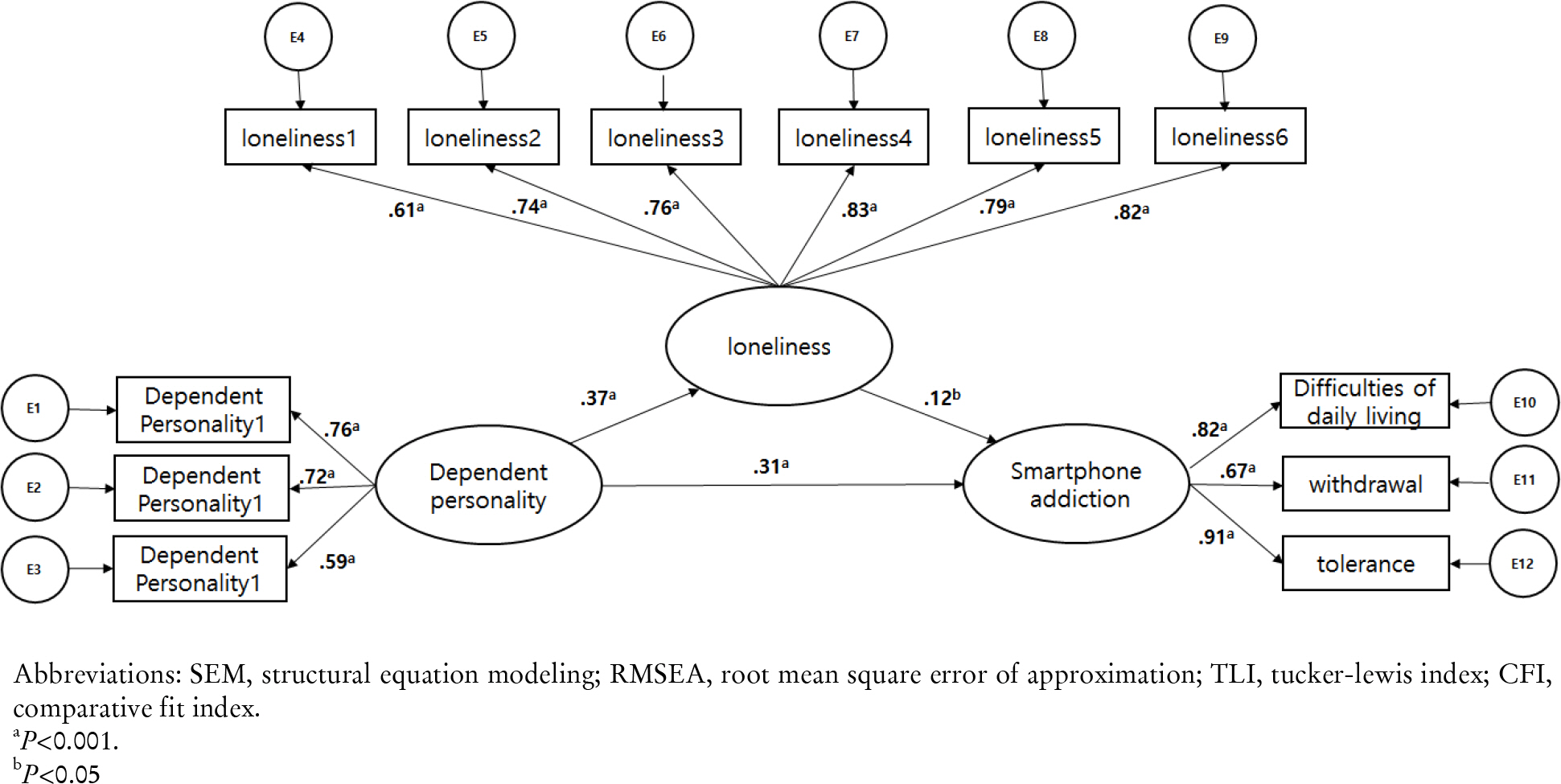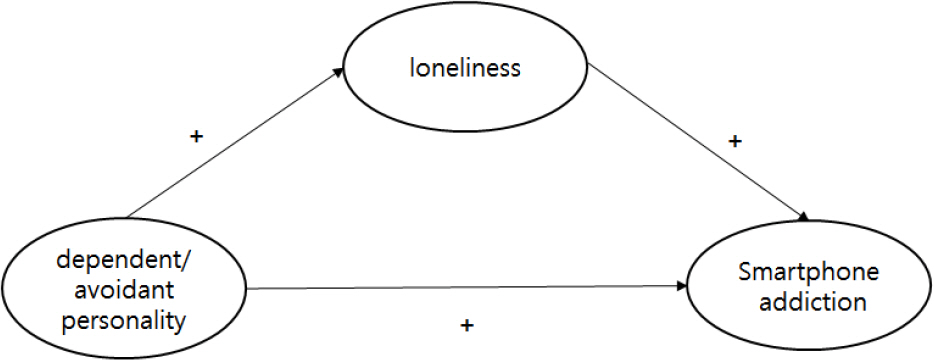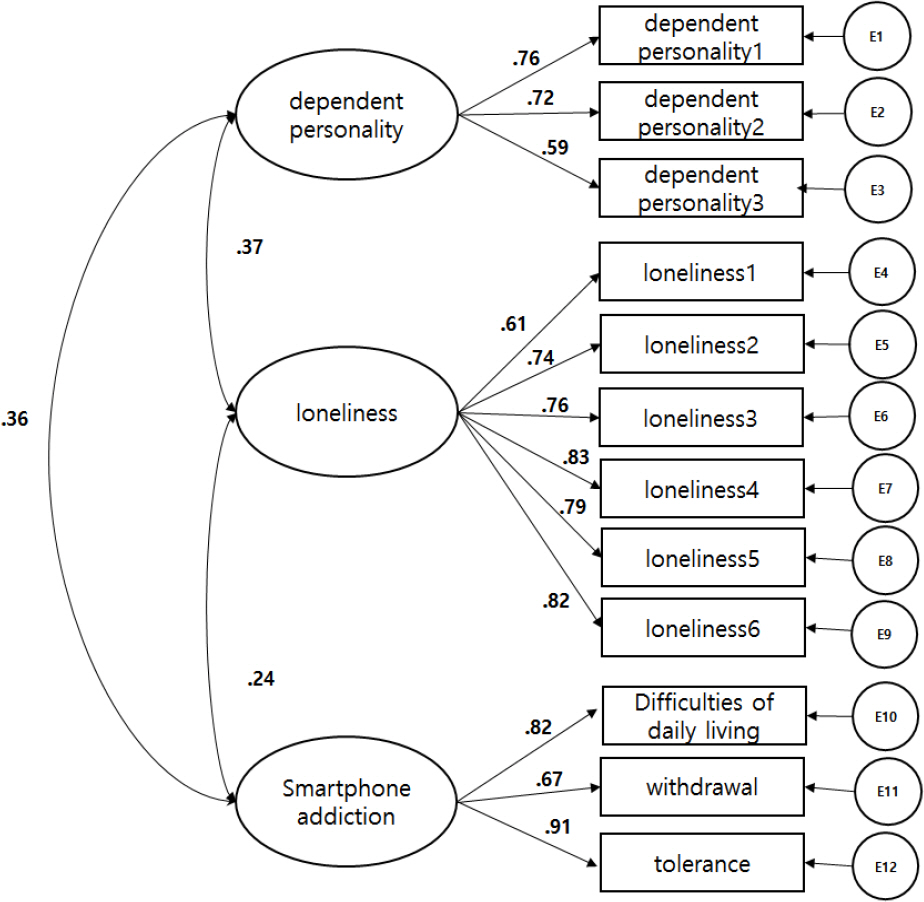References
1. Chen BX. Always on: how the iPhone unolcked the anything-anytime-anywhere future-and locke us in Boston: Da Capo Press; 2011.
2. National Information Society Agency. National information white paper Seoul: National Information Society Agency; 2015.
3. National Information Society Agency. The survey on internet overdependence Seoul: National Information Society Agency; 2015.
4. Chang MS, Park GP, Jung SH, Woo SW. The relationship among dependent and avoidant personality trait, psychological trait and addiction. The Korean J East West Science 2011;14(1):1–19.
5. Choi JC. Lee JY. Jang JY. The mediating effects of emotional regulation on the relationship between cellular phone addictive use and personality trait in adolescents. Asian J Education 2014;15(2):323–45.
6. Choi SW, Kim DJ, Choi JS, Ahn HJ, Choi EJ Song WJ, et al. Comparison of risk and protective factors associated with smartphone addiction and internet addiction. J Behav Addict 2015;4(4):308–14.
7. Kim DI, Jung YJ. Lee YH. Delphi study on concepts and components of smart media addiction. Asian J Education 2013;14(4):49–71.
8. Kim HJ, Kim JH, Jung SH. Predictors of smartphone addiction and behavioral patterns. J Cybercommunication Academic Society 2012;29(4):55–93.
9. Kim Y, Jeong JE, Cho H, Jung DJ, Kwak MJ, Pho MJ, et al. Personality factors predicting smartphone addiction predisposition: behavioral inhibition and activation systems impulsivity, and self-control. PloS One 2016;11(8)): e0159788.
10. Lee J. An addiction-prone personality: common personality characteristics invarious addictive and compulsive behaviors. Korean J Health Psychology 2006;11(3):459–532.
11. Frangos CC, Fragkos KC. Psychologic predictors and epidemiology of internet addiction among university students in greece. European Psychiatry 2011;26(1):40–54.
12. Jeon HS, Jang O. A study on the influence of depression and stress on smartphone addiction among university students: focused on moderating effect of gender. Korean J Youth Studies 2014;21(8):103–129.
13. Woo RN. Exploration of risk factors and protective factors in addictive mobile phone use [dissertation] Jinju: Kyungsang University; 2009. Korean.
14. Kuss DJ, Griffiths MD. Online social networking and addiction–a review of the psychological literature. Int J Environ Res Public Health 2011;8(9):3528–52.
15. Rokach A. Loneliness updated: an introduction. J Psychol 2012;146(1–2):1–6.
16. Byun HS, Kweon SY. The effect of elementary school students'loneliness on school life adaptation: the mediating effect of smartphone addiction. J Child Education 2014;23(4):303–17.
17. Yuh J. The relationship between loneliness and smartphone addiction symptoms among middle school students: testing the mediating role of self-esteem. Korea Youth Research Association 2016;23(1):129–52.
18. Jang SH, Park YJ. The relations among teenagers'mental health, self-control, and self-esteem according to their mobile phone addiction. J Korean Education Forum 2009;8(3):35–41.
19. Lim YS, Lee YJ, Han SJ. Research on factors affecting the smartphone addiction of college students based on the GIA. J Korea Academia-Industrial Cooperation Society 2016;17(5):56–66.
20. Shin HK, Lee MS, Kim HK. An empirical study on mobile usage behavior-focusing on smartphone usage addiction. Infor-matization Policy 2011;18(3):50–68.
21. Seo JS, Hwang ST. Development and validating of the Korean personality disorders test. Korean J Clin Psychol 2006;25(1):273–88.
22. Noh EJ, Hwang ST, Ku HM, Lee SH. Reliability and validity of dependent and avoidant subscales of the diagnostic test for personality disorders. Korean J Clinical Psychology 2008;27(1):311–32.
23. National Information Society Agency. Development of korean smartphone addiction proneness scale for youth and adults Seoul: National Information Society Agency; 2011.
24. Russel D, Peplau LA, Cutrona CE. The received UCLA loneliness scale: concurrent and discriminant validity evidence. J Pers Soc Psychol 1980;39(3):472–88.
25. Kim KH, Kim JH. Korea UCLA Loneliness Scale. J Student Guidance 1989;16:13–30.
26. Russell DW, Kahn JH, Spoth R, Altmaier EM. Analyzing data from experimental studies: a latent variable structural equation modeling approach. J Couns Psychol 1998;45(1):18–29.
27. Hong S. The criteria for selecting appropriate fit indices in structural equation modeling and their rationales. Korean J Clin Psychol 2000;19(1):161–77.
28. An DY, Lee HJ. A preliminary study on the development of group therapy program for managing loneliness. Cognitive Behavior Therapy in Korea 2011;11(1):1–15.
29. Aljomaa SS, QuDah MFA, Albursan IS, Bakhiet SF, Abduljab-bar AS. Smartphone addiction among university students in the light of some variables. Comput Human Behav 2016;61:155–64.
30. Lee JH, Leem JM, Son HB, Kwak HW, Chang MS. Development and validating of a smartphone addiction scale based on behavioral addiciton criteria. Korean J Counseling and Psychotherapy 2016;28(2):425–43.







